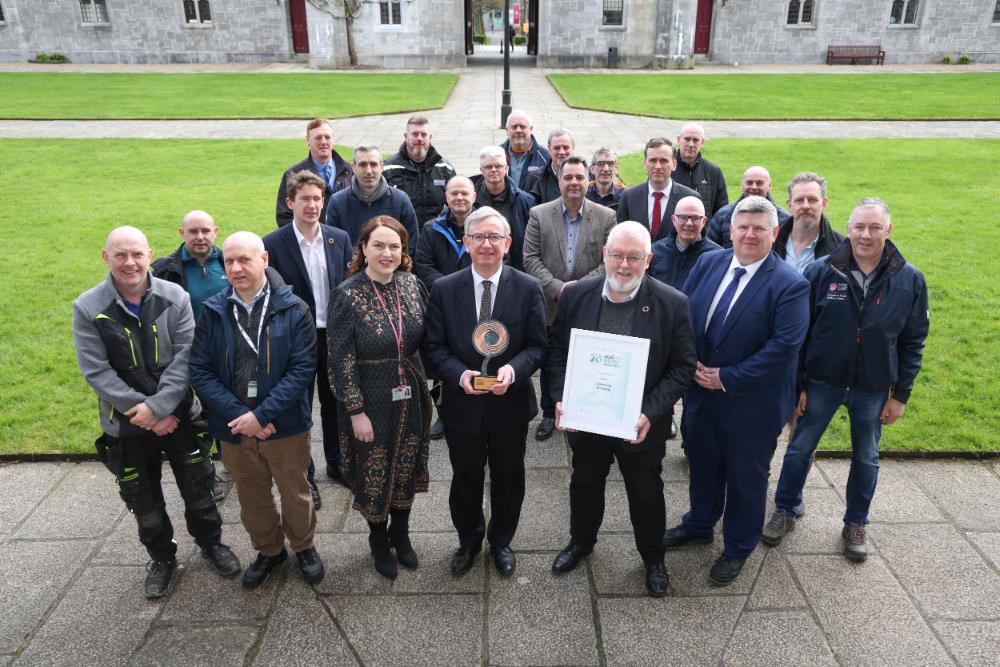-
Courses

Courses
Choosing a course is one of the most important decisions you'll ever make! View our courses and see what our students and lecturers have to say about the courses you are interested in at the links below.
-
University Life

University Life
Each year more than 4,000 choose University of Galway as their University of choice. Find out what life at University of Galway is all about here.
-
About University of Galway

About University of Galway
Since 1845, University of Galway has been sharing the highest quality teaching and research with Ireland and the world. Find out what makes our University so special – from our distinguished history to the latest news and campus developments.
-
Colleges & Schools

Colleges & Schools
University of Galway has earned international recognition as a research-led university with a commitment to top quality teaching across a range of key areas of expertise.
-
Research & Innovation

Research & Innovation
University of Galway’s vibrant research community take on some of the most pressing challenges of our times.
-
Business & Industry

Guiding Breakthrough Research at University of Galway
We explore and facilitate commercial opportunities for the research community at University of Galway, as well as facilitating industry partnership.
-
Alumni & Friends

Alumni & Friends
There are 128,000 University of Galway alumni worldwide. Stay connected to your alumni community! Join our social networks and update your details online.
-
Community Engagement

Community Engagement
At University of Galway, we believe that the best learning takes place when you apply what you learn in a real world context. That's why many of our courses include work placements or community projects.
Energy Management
What we do
The Energy Office is responsible for procuring and managing the University's energy supplies. As a high-energy consumer, it is essential that the
University looks at how it can reduce demand and generate enough energy to meet demand requirements whilst operating as a world class campus.
Energy Team
The Energy team is also responsible for the following aspects of energy management for the University:

- Assuring energy is utilised effectively and efficiently across the campus.
- Developing prioritised energy efficiency projects using ISO50001:2018
- Procuring the University’s electricity, gas, oil and water supplies
- Validating and authorising energy invoices.
- Carrying out energy surveys and audits.
- Identifying energy waste and making recommendations to reduce this.
- Providing consumption and cost information for management reporting purposes.
- Supporting colleagues on energy conservation issues.
- Liaising with external organisation on energy best practice.
- Assessing new energy saving technologies.
- Carrying out project on campus.
The Energy team works closely with Capital office and Building Services teams on sustainable construction strategy.
Energy Review
An annual Energy Review is carried out to comply with the requirements of ISO 50001 2018 Cert Energy Management System (EnMS) standard, clause is 6.3. The main purpose of this energy review is to analyse University of Galway’s energy usage and consumption based on the measurement and other data i.e. the identification of current types of energy use, the evaluation of past and present energy usage and the analysis and identification of the Significant Energy Users (SEUs).
Monthly reviews are carried out to identify the significant energy users (SEU’s) across University of Galway’s campuses as well as the variables and people that can significantly impact them. To determine the SEU’s the following process is applied:
- Review past and present energy performance.
- Identify the SEU’s, the equipment, facilities, variables and people that can impact them.
- Agree energy performance indicators (EnPI’s) for the SEU’s.
- Identify any energy-saving opportunities, prioritise and develop a plan to implement the changes.
- Determine methods to validate energy-saving measures.
- The results of these reviews feed into our overall Energy Review Report, which we report to the SEAI, and specifically form the basis of our Energy
Management Action Plan (within Section 3.2 of the below Energy Reports) and our Register of Opportunities which seeks to identify all potential existing building energy upgrades and their costings.
University of Galway SEAI Monitoring and Verification Report 2023
Procurement of energy services, products, equipment and energy
As University of Galway is a public body, all significant procurements are steered by the Irish States various public sector procurement procedures and regulations. Our electrical and natural gas contracts are purchased collectively through the Office of Government Procurement. Through these collective contracts University of Galway strives to purchase from renewable energy sources. Energy conservation plays a major role in the tendering and ongoing maintenance contracts of our building services while our new and replacement equipment items are sourced from the SEAI Triple E product register (click here) or equivalent. The new Government Climate Action plan has set out new levels of Green Procurement and actions for public sector bodies to achieve, University of Galway will take part in these through the OGP.
Sustainable Public Procurment Handbook
External bodies links
University of Galway Sustainability
SEAI - Sustainable Energy Authority of Ireland
CIBSE - Chartered Institution of Buildings Services Engineers
Display Energy Certificates
Display Energy Certificates (DECs) are designed to show the energy performance of public buildings.
They use a scale that runs from ‘A’ to ‘G’ - ‘A’ being the most efficient and ‘G’ being the least. DECs last for 1 year for buildings with a total useful floor area more than 1,000 m2.
They last for 10 years when the total useful floor area is over 250 m2 and up to 1,000 m2. See our latest DEC Certs below:
-900x964.png)















